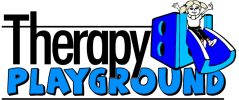“Language and Literacy”
MaryBeth and Julieanne Mary Beth and Julieanne discuss how a Speech-Language Pathologist can specialize in literacy. Many therapists specialize in different areas such as feeding, articulation, oral motor weakness, auditory comprehension, and literacy.
When we’re talking about Speech Pathologist covering such a broad spectrum of disorders in such a broad spectrum of therapies, the question comes into play when you’re talking about children with severe speech and language difficulties. They might have difficulty being understood by their peers, expressing their thoughts, having the confidence of raising their hand in the classroom, secondary social problems at school, and lastly, which is often overlooked by their therapist is their reading and comprehension.
What ASHA (American Speech and Hearing Association) has said about that is when it’s the case of a severe communication impairment or a child that has multiple disabilities, it is the Speech Pathologist role to step in and provide direct treatment. Parents and therapist need to identify these children so we know when and how to provide therapy.
Some of the symptoms you can look for are, starting a very early age, which is now a predictor of whether they will have a reading impairment later on. Some of those things will be if they were a late talker, if they had severe phonological processes, meaning they follow rules they make up vs. following the standard rules.
It is different than just articulation if they were very severe at a young age. Being able to make their letters sounds at an early age, or some of the skills we don’t even think about like drawing a picture and telling mommy what the picture is of, those are all indicators of their literacy and their ability to read later on will be.
It is very difficult when you have a child that is so involved, they may have a language delay, phonological delay. Their parents are focused on getting their child to speak and understand them, the literacy portion is overlooked. When they get into Kindergarten and learning to read, they’re falling behind, and you wonder why. They may not be processing the sound correctly, it could be very difficult. If a child does have problems with literacy, is that a different treatment session, or targeted all together, how would a Speech Therapist treat this?
If your child is having difficulties with some of those things, how do you know and when do you start that kind of therapy. The question is kind of multifaceted, if it is a young child, some of those things can be worked into therapy on the side, and most of that at young age is really something the parents can be doing at home. But it is our role to tell the parents, because it is commonly overlooked.
Parents can practice naming letters, the letter sounds, doing simple things like the “Apple Song”, that says “Apple, Apple, Ah, Ah, Ah”. The kids love it and it’s simple enough. It teaches the sound to letter correspondence vs just the name of the letter. We see that a lot where the kid can name it but not say what sounds go with it.
Have the child hold books and point to a word on a page, or even simply holding the book the correct way vs. upside down. Those are all things that just add to their print awareness.
When you get into the Preschool to Kindergarten level you can do more of sound segmenting, doing parts of words and separating the first and last letters of a word. But once you get into the older age, you get into a whole new ballgame of things to be looking for, and that’s when it becomes a Speech Pathologist responsibility in therapy is when we can take over.
There wouldn’t necessarily be a separate therapy session, you would target this with the other therapy goals and incorporate literacy activities into the treatment to help the child progress.
So how do you know that the therapy target should be literacy, or should be grammar, or any of these other things? And the answer from the literacy clinician is to target them all together and the way you would do that is to do your reading activities, and through reading you can target conversational skills by reading about what is happening and then applying it to daily life. You can target vocabulary skills by learning new words, and identifying the meaning. A lot of times these issues are not brought to the therapists attention.
Most therapy sessions are 30 minutes and it’s very difficult to target the 4 or 5 goals we have plus include literacy activities, so it’s great if you’re able to do all of that together. A lot of therapists like to give out homework, so you could send home reading activities that target their language goals as well as promote literacy.
There is standardized testing that can be given, most of the time it is given secondary, after the therapist sees there are concerns or the parent reports concerns. It’s crucial for parents to know we are a resource they can use with a literacy evaluation.
There is a resource called the “Florida Center for Reading Research”. It is used in all of the Florida schools, designed for teachers. There are games and activities. They are broken down per grade level and topic which helps them work on specific skills. This is something the parent has access to and can work on at home and work together with the therapist sessions.
The website is FCRR.org, and it goes from Pre-K to 5th Grade. Feel free to ask your Speech Pathologist about this and talk about ways they can incorporate literacy into the treatment session or schedule an evaluation to determine if your child has phonological awareness problems.
